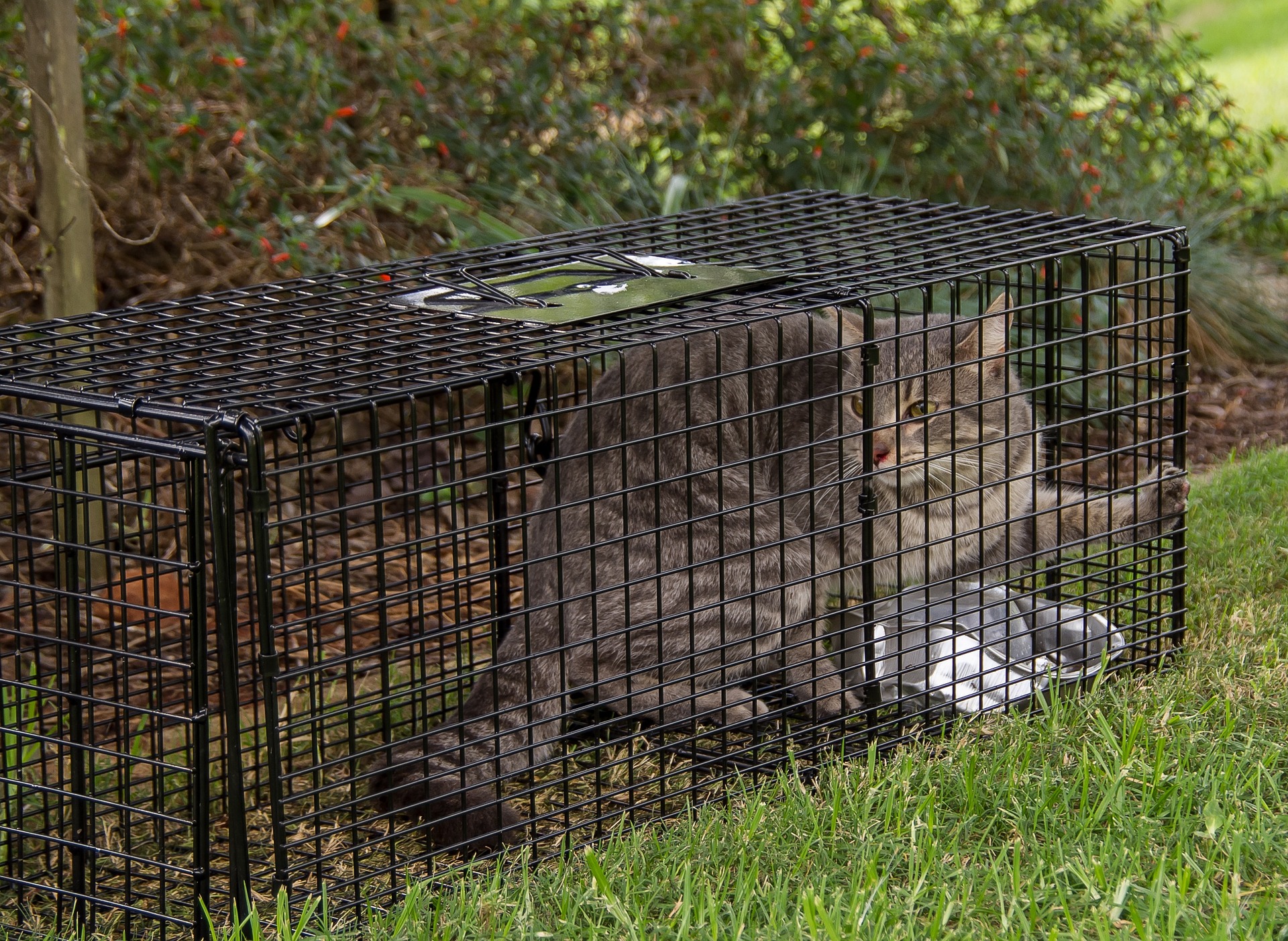Managing Feral Populations
MOAS was founded in large part to address the problems caused by feral cats and dogs in both Madison and Oglethorpe County. We remain committed to that original goal, and we offer a number of different ways to assist you if you are concerned about feral animals living on or near your property. While the primary focus of this page is on feral cats and the use of TNR (trap, neuter, return), we are aware of the feral dog problem in our community (especially as it affects Oglethorpe County), and we are working with our local partners on ways to address it. If you are concerned about stray or feral dogs, please contact our shelter, and staff will be happy to discuss options with you.
Fix those Feral Felines!
Please check back for our next TNR Day Date!
If you are interested in a TNR BEFORE our next TNR Day, please submit a regular spay/neuter application under our services tab.
If you need humane traps or need help trapping, traps can be rented from us for a $50 deposit fee.
FREE Feral Cat Spay & Neuters for Madison and Oglethorpe County Residents!
Every year the Madison-Oglethorpe Animal Shelter (MOAS) takes in around 2,000 animals with the vast majority of these intakes being cats and kittens. A person would not think that the shelter’s work is seasonal but, historically, the summer months have proven to be brutal with hundreds of animals entering the shelter system daily. Many well-intended residents begin feeding feral/wild cats that wonder on their property, but quickly find themselves being overwhelmed with the number of cats once they begin reproducing. Large amounts of cats and kittens eventually find themselves being surrendered to the local animal shelters. To assist our county residents from finding themselves in situations described above, our shelter have been granted funds to help combat the unwanted cat populations in the counties we serve.
We will periodically announce TNR days for feral cats that home/land owners wish to release back on their properties.
Trap Rentals
We provide trap rentals at a minimal cost to assist in trapping feral cats with your rental fee being reimbursed to you upon return of the trap. We have a number of cat traps available for your needs. It is often best to set out multiple traps at once, especially if you expect that you'll need to trap a large number of animals.
Our shelter staff will be happy to discuss tips on how to successfully trap animals using a humane trap. Best of all, these traps allow our veterinary staff to sedate the animal in preparation for spay/neuter surgery with low risk of harm to the animals or our staff.
Spay/Neuter at our Low-Cost Clinic
We will spay/neuter feral cats at our low-cost clinic for only $70 for females and $50 for males. This is also a good opportunity to have them vaccinated for rabies. Our feral cat package also includes a mandatory ear tip (discussed next). While some trapped animals (like the one pictured above) will be friendly enough to be handled and can potentially be put up for adoption if they are unwanted, others will be truly feral and would not do well in a typical adoptive home.
However, once they are spayed and neutered, they are ideal candidates to be returned to your property. Animals that have been altered show less problem behaviors (fighting, roaming, caterwauling, etc.) and are less likely to have health issues. But most importantly, research shows that TNR is the best way to reduce the feral population in your area. Your newly altered cat(s) will maintain their own territory on your property and will discourage other feral cats from moving in.
If you just remove the feral cats and euthanize them, research has shown that they will simply be replaced by new feral cats who are attracted to the same conditions that brought the original ferals to your area in the first place. These new ferals will breed and produce new ferals (oftentimes with two litters per female cat per year!) leading to a much large problem than you may have had originally.
Finally, if you are interested in altering a large colony of stray/feral cats, please contact our shelter to inquire about financial assistance. We currently have funds to assist with Oglethorpe County residents due to the fundraising efforts of a local advocacy group, and we are actively applying for grants to assist with Madison County residents.
Ear Tipping
We require ear tipping on all of our feral cat surgeries. Ear tipping involves (you guessed it!) removing the tip off of one of a cat's ears, usually their left as shown above, but not always. This cosmetic change does impair the animal in any way (in fact many feral cats already have damaged ears from fighting), but it is a sure sign that the cat is already spayed or neutered and is likely part of a managed colony. There's also a good chance that the cat has already been vaccinated for rabies.
Ear tipped cats should be left where you find them whenever possible, but of course, if the animals is sick, injured, or otherwise a nuisance, it may not be possible to do that. If you have questions or concerns about an ear tipped animal, feel free to contact our staff for advice on how to proceed.




